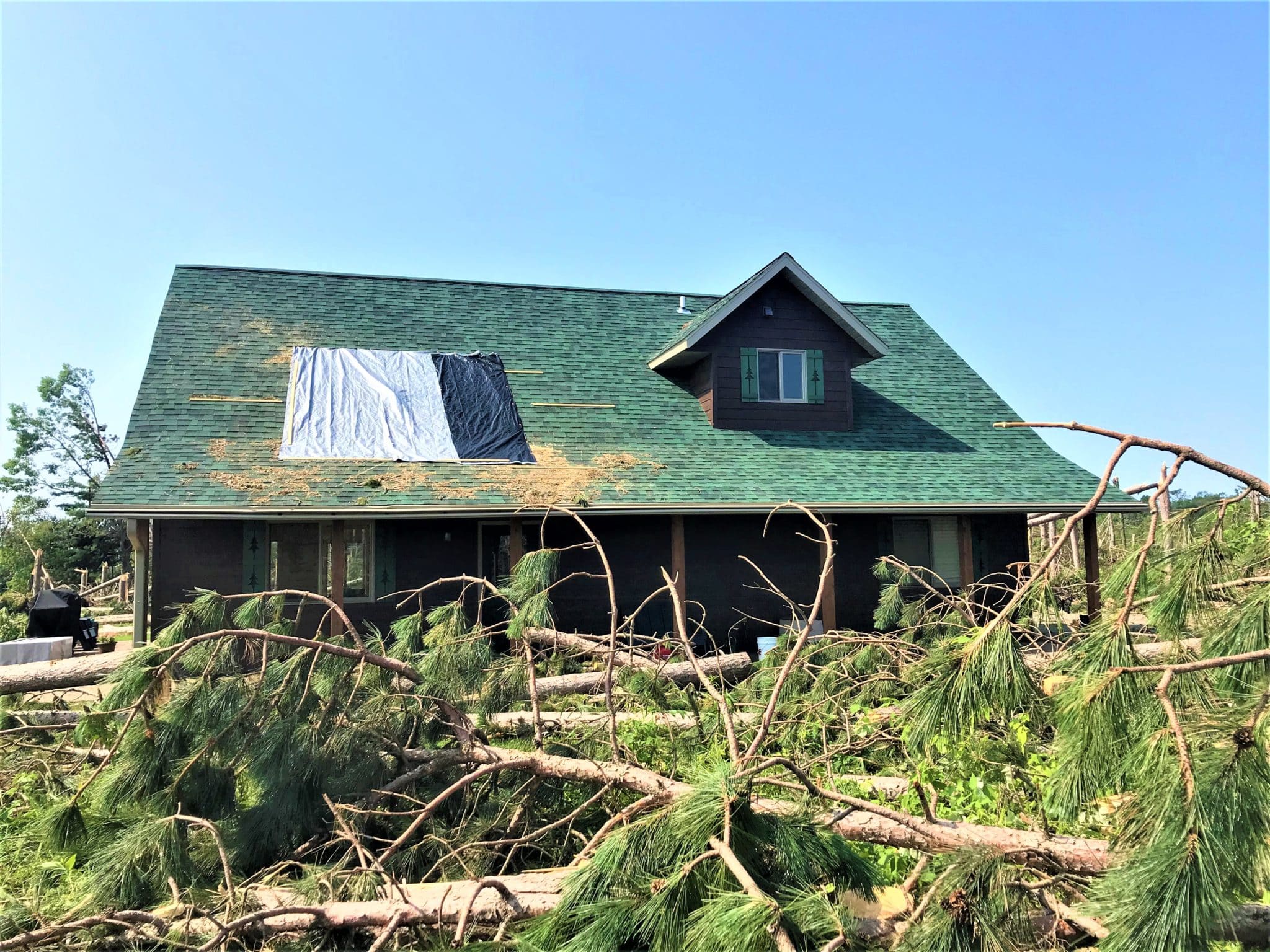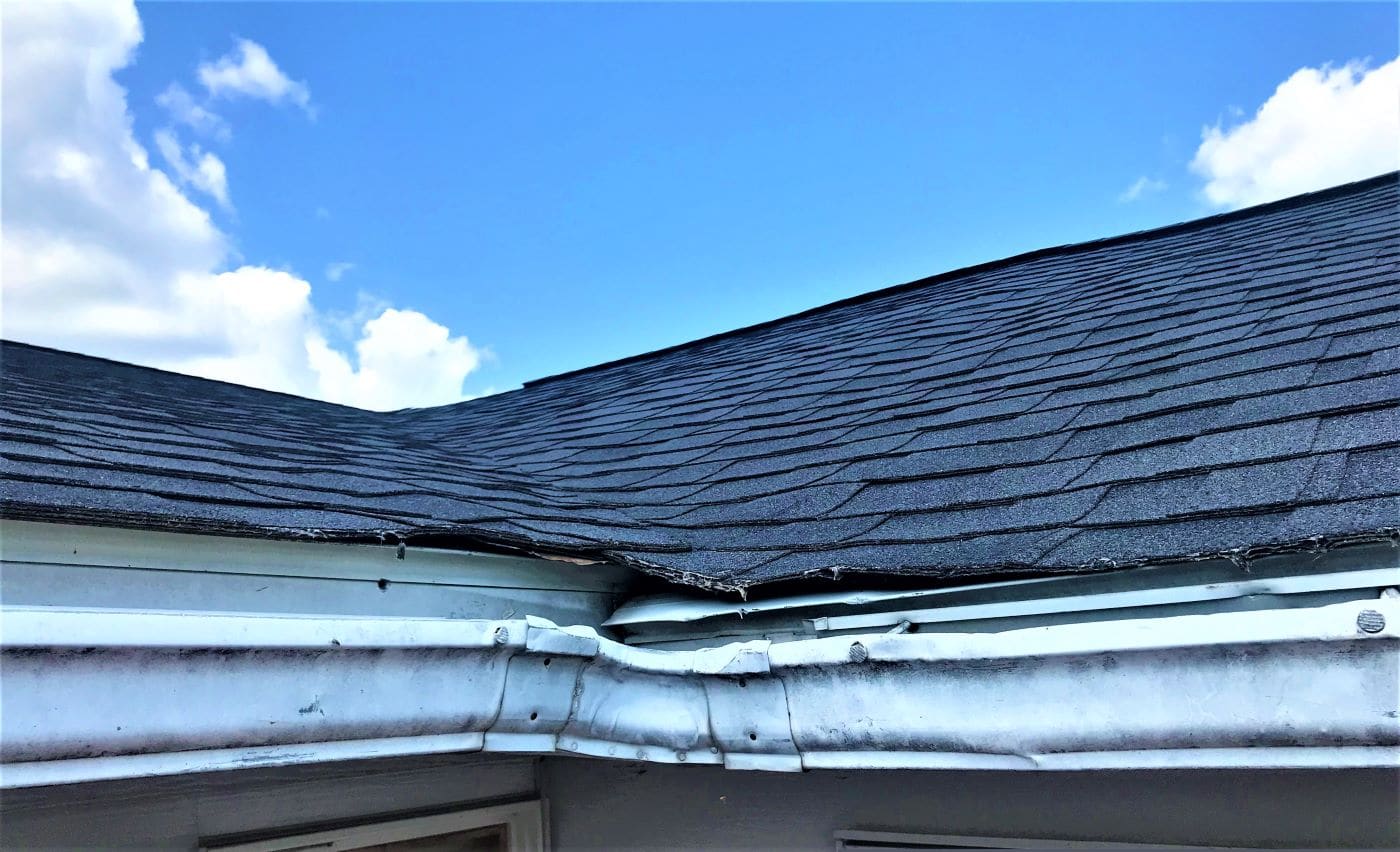How to Deal With Unreliable Storm Chasing Roofing Contractors
It’s been said that the only things certain in life are death and taxes. Having been in the home improvement industry for the past 40 years, we’d like to include an additional item to this list: storm chasing contractors. Like clockwork, as soon as heavy winds or hail desecrates an area, contractors from several states away enter the impacted areas into their GPS and start driving. Risks that come from working with storm chasing contractors include incomplete work, work that doesn’t meet building codes, and having to retain storm damaged services from another contractor and attorney to get your home restored.

Signs a Roofing Contractor is a Storm Chaser:
Their Address is a PO Box
This means there’s no genuine way to track a storm chaser down in a few years should their seemingly acceptable roof installation begin to leak. Even though roofing manufacturers offer material warranties, if the product was installed incorrectly, the manufacturer warranty is void.
Inability to Produce Local References
If the only names and phone numbers of homeowners a contractor can provide are from several states away, it’s likely they are a storm chaser. In today’s economy, reputable contractors quickly book up and have no need to live a nomadic lifestyle.
The Storm Chaser Offers to Pay Your Insurance Deductible
This, in one word is fraud. This is because an insurance policy is a legally binding contract between a homeowner and their insurance company. Learn more about the insurance claim process when your home is damaged by a storm.
Unable to Supply Documentation of Being Licensed & Insured
If a worker is injured working on your property and the roofing contractor they’re working for does not have insurance or lacks proper limits, the homeowner can become liable for their medical expenses and even lifetime disability. Likewise, if storm chasing contractors don’t have general liability insurance and damages your home while performing work, the homeowner can be left trying sue for damages, with the hopes the contractor has the ability to pay.
No Builder’s License Number
A contractor’s license number shows that they adhere to industry standards. Unlicensed contractors cannot pull building permits and are very unlikely to perform work that’s up to building code.
Be on the Look-Out for Out of State License Plates
If the roofing contractor at your door has license plates from a state in a different time zone, it’s a sure sign they are a storm chaser. The same holds true of their driver’s license. Beware of any of any contractor in a company vehicle that has magnets that can be removed at a moment’s notice. Simply having attire with a construction company logo on it, does not insure they are local.
What to Do if a Storm Chasing Contractor Comes to Your Door:
Act in a Calm & Patient Manner
Storm chasers make for unreliable roof contracts and try to take advantage of the fact that homeowners with storm damage are anxious to get the work completed quickly. In most cases, homeowners have a year to file a claim after a storm and can have up to two years to get the work completed.
Do Not Allow Them to Inspect Your Roof
Even if you haven’t agreed to hire the contractor, if they perform an inspection and are not insured, the homeowner can be liable for their injuries.
Don’t Sign Anything
A common trait among storm chasing contractors is high pressure sales tactics. Signing vague contingency documents to allow them to commence work once your insurance company has approved it can lead to harassment and threats of litigation.
Get the Facts On Storm Damage Restoration
